I’m ashamed to admit how long it took for me to get into the work of Nathan Fielder. “Nathan for you” had been on my to-do list for years, but when I heard about “The Rehearsal”, I dropped everything to check it out. I was not ready for what awaited me…
Nathan Fielder’s work takes place between reality and fiction. Most of what he does can be broadly described as “reality TV”, though it’s extremely unclear to tell what’s scripted or improv, and what’s real and fictional. This ambiguity is his trademark, and stems from his roots as a magician. He uses his mastery of misdirection and illusions for more than entertainment: he holds a mirror to us in which we can see how much of our society is based on smoke and mirrors.
Business school with really good grades
“Nathan for you” is a reality TV of the same kind as Gordon Ramsey and co. where Nathan uses his business diploma to help struggling small businesses. Most of the ideas are in the gray zone which is technically doable but not really done. I won’t spoil too much, but the first episode is a good example of this: he advises a pizzeria to offer a free pizza if they cannot match an unreasonable delivery time, but the free pizza is tiny.
At first glance, it is reminiscent of Zizek’s famous analysis of Donald Trump’s obscene behavior. Trump is also great at violating unwritten rules. Zizek was seeing here a symptom of the loss of the implicit rules that are the backbone of society, though he also acknowledges it is a widening of the space of possibilities. But I think we’re facing something different here: Nathan’s techniques are closer to finding “exploits” in the “rules” of capitalism, and in doing so he really puts into perspective how absurd this “game” is.
It strikes me as closer to the methods of Houdini who used to attend seance to debunk them by highlighting the manipulations techniques at play. In fact, he quoted Derren Brown’s Heist explicitely as an inspiration in an interview. In the same way, Nathan uses his experience of marketing and prestidigitation to highlight how omnipresent the manipulation by consumerist forces has become. He masterfully uses ambiguity in social norms to expose the absurdity of capitalism.
Horror stories for our times
The anti-“neoliberal capitalism” dimension of his work is perhaps most clear in his recent scripted fiction The Curse. It follows a relatively wealthy heiress in her project of rejuvenating the town of Espanola using a reality TV show of house-flipping with an ecological vibe.

There’s a lot to be said about the characters and their projects, but one of the most striking aspects to me is that they really do try to do everything by the book to do “ethical neoliberal capitalism”. They go through extreme lengths to bet on sustainable technologies, to provide jobs to local communities, etc…
The show portrays the best possible way for the market to handle humanitarian crises, and ethical capitalism is nothing short of inhuman horror. Horror could even be too tame for it: the show opens on an interview of local residents where the production crew puts makeup on a dying woman to accentuate her perceived happiness that her son has been blessed by their gentrifying settlers with a steady job. And the saddest thing is this is probably actually the best he could have hoped for. This capitalist realist stance is barely an exaggeration over real life where everybody is freaking out about automation causing job losses. How far into fakeness and absurdity are we already? How much further can we go?

The hyperstitional reign of appearances
At its core, The Curse is a study of the power of appearances. The title refers to a scene in which a small child curses the protagonist after he instrumentalizes her for his show (note that it’s pretty fitting that him exploiting her appearance is the trigger). This event takes a relatively small part of the screen time, but it builds up in the characters’ mind as he ends up wondering (with the audience) if his misfortunes could be due to the curse being real after all.
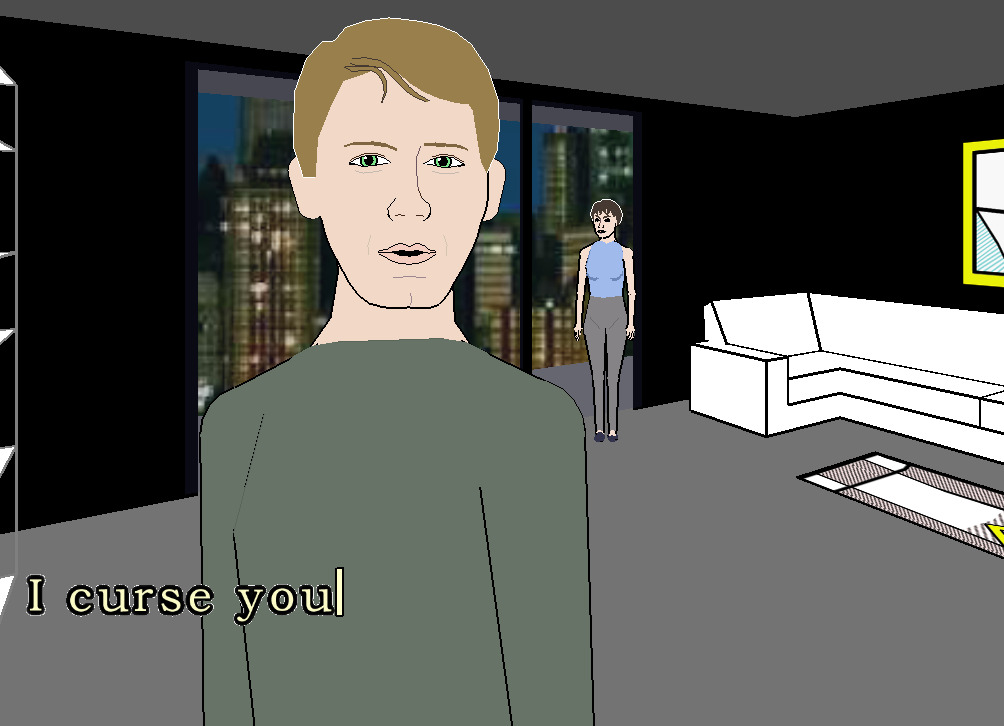
The beauty of this is that it cannot not be real, in a way: he cannot un-hear the words, the speech of the young girl has affected his behavior and irremediably changed his life. He’ll take decisions with this memory in mind, interpret events through that lens, and make it a self-fulfilling prophecy. Even without going through possible self-sabotages that can be caused by his paranoia, obsessively wondering if bad luck is caused by a curse is itself its own (inescapable) curse.
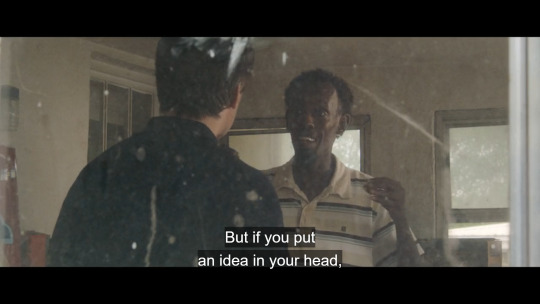

One cannot dream for a better illustration of the little known concept of hyperstition, championed by the CCRU and tragically underused. Language can have this weird property of necessary-self-realization that is nothing short of fascinating: it’s an absolute power of semantics over matter that we could call literal magic.
The Curse also explores this phenomenon on a broader meta-level. Through the presence of cameras, it studies how attention (and framing) shapes and necessarily distorts the events it’s supposedly observing. There’s no such thing as objective neutral reporting. The character’s perception cannot but be thwarted by the curse, the community around cannot but be changed by the shooting of the house-flipping show, the script of The Curse cannot but dictate the viewer’s opinion of the characters…
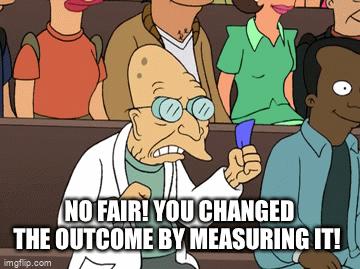
An (overton) window on ideology
It’s interesting to note that this shift in interpretative framework is how ideology operates. It’s pretty frequent nowadays to see politicians summon out of thin air fake controversies to distract the public. I don’t think it’s always premeditated but it’s never innocuous. Once the concept of “legitimate rape” is born, the conceptual landscape is forever altered, and things become negotiable/monetizable that were not before.
Reality TV is the perfect place for Nathan Fielder to explore this: it’s a special place between game and reality where there are clear stipulated rules. These rules are often really absurd and create all the tensions that are the story of the show. But notice how they are fundamental in the micro-reality of the show, and nobody questions the premise of the show that shapes their whole experience.
Baudrillard famously said that Disneyland is presented as imaginary in order to make us believe that the rest is real, whereas all America that surrounds it is no longer real. In the same way, reality TV is presented as absurdly gamified to hide the fact that our social reality is nothing but a game. More than ever, we need more fundamental questioning of the hidden assumptions that keep capitalism running.
The Boy Who Cried Meta
It’s a bit obvious but I haven’t seen it discussed a lot in the analyses of The Curse: it clearly wants to be a retelling of the boy who cried wolf. The tale is explicitly mentioned in episode 8. One could say that the retelling is in Nathan’s character who obsesses so much about the curse that he might not see it if it gets real. But to me, it’s mostly about communication. The characters have lied so much that when they need to be taken seriously, they are not. They’ve encouraged deceitful appearances so much that they completely destroyed trust and reality, and that’s how you end up with Nathan’s character’s fate in the last episode.
But as Nathan Fielder’s work is so meta, I want to go one step further. What if we apply this logic to the creator himself? I hope for him that he won’t end up the way The Curse did, but it does seem to me that his whole work is yelling in our face that we’re completely obsessed with a ridiculous socio-economic model fueled by appearances that drives us away from the Real and from each other every day more and more.
People are increasingly talking past each other. Nowhere is that clearer than in politics: what passes for the left obsessively uses basic rationality when the right is in another type of thinking and discourse entirely. In a world where the social fabric seems to be disintegrating, where rabid individualism isolates us in our own separate bubbles, I think that Nathan is urging us to connect with each other and question the rules of the game that keep us apart. And I do hope the boy who cried wolf manages to be heard before it’s too late.

The curse of existence
This brings us back to marketing and PR: how do you get heard in our world? If The Curse is a study on how attention shapes reality, it’s also crucially asking the question of who controls this. And part of the answer is pretty straightforward: it’s the people behind the cameras. But it’s not a single director-author, it’s a complex network of intertwined stakeholders and incentives hard-wired to self-perpetuate.
The house-flipping show is a crucial part of the business strategy of our protagonists. It’ll shed light on the town and create the return on investment they’re hoping for (notice the power of attention to produce value). But it’s not easily done: they need to find a platform and be seen.

The characters struggle constantly with the fact that their ethical ambitions, no matter how warped, are at odds with the system. Even their very market-friendly consumerist ambition ends up having to compromise constantly to get their show on the air. They need to make it an entertaining spectacle to draw eyeballs.
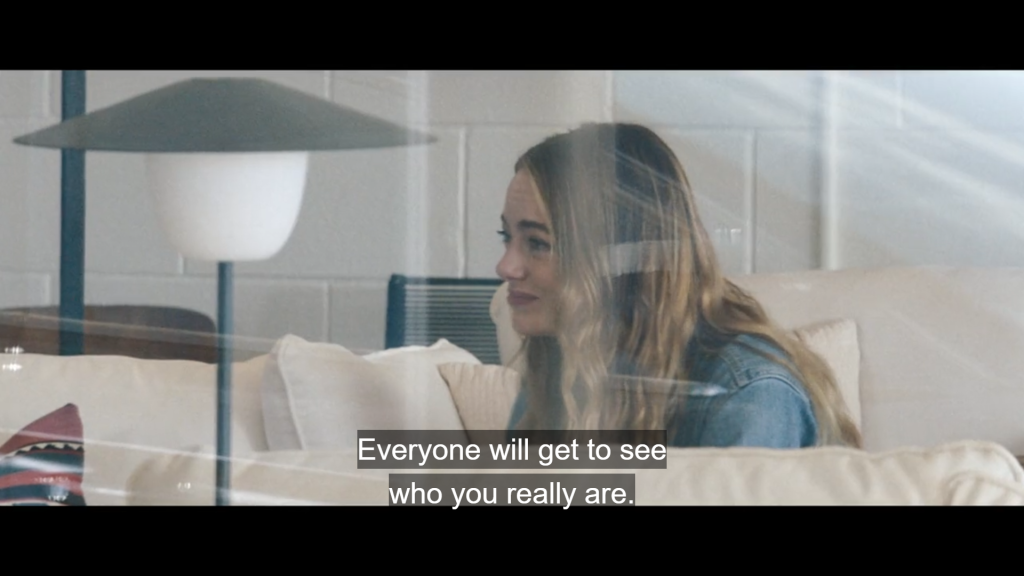
Even a wealthy person’s message means nothing if it’s not being heard. Existence and relevance in our world is conditioned by perception. Neoliberal capitalism has us all in the precarious situation of managing our personal brand, gating every single operation behind an efficient PR. The end of The Curse makes it clear that to exist is to be perceived, which incidentally puts the responsibility of your very existence (and the power that comes with) in the hands of other people (and that’s why they’re hell). And in a world where attention is so divided, existence itself becomes fragile. No wonder why we cling to our bullshit jobs.
The human left behind
Marketing is a game of appearances not preoccupied with fairness. Only the most lucky among the most privileged stand the tiniest chance of success. In this cutthroat race for attention, survivor bias is extremely strong. Only people who’ve won at PR get to tell their stories, and it necessarily has an impact on the stories we tell. It pours more fuel on the fire of the absurd individualist meritocracy that underlies neoliberal ideology. Under these circumstances, choosing who to listen to is a political act.
Nathan Fielder often recruits people on Craigslist. During “Nathan for you”, by the very nature of the show focusing on failed businesses, he ended up portraying people who are not usually given a chance in the media, and it’s definitely a breath of fresh air. But it’s especially a step towards portraying reality where most projects and most people don’t succeed. The finale episode is an especially poignant story of a failed actor.
Instead of exploiting an idealized version of people, Nathan Fielder instead remolds our hyperreal media around the humans. His extreme contrived artificiality seems to me like a magic trick, misdirection designed to foster and bring out authenticity. He ends up bonding with the participants or the victims of his stunts and even develops long lasting friendships with some.
I cannot resist mentioning my favorite part of “Nathan for you”: in order to allow smoking in a bar where it’s outlawed, he decides to turn the bar into a theater by adding two spectator seats. Thereby, he turns real life into what might be the most realistic theater play ever, carried by actual humans living their normal lives.
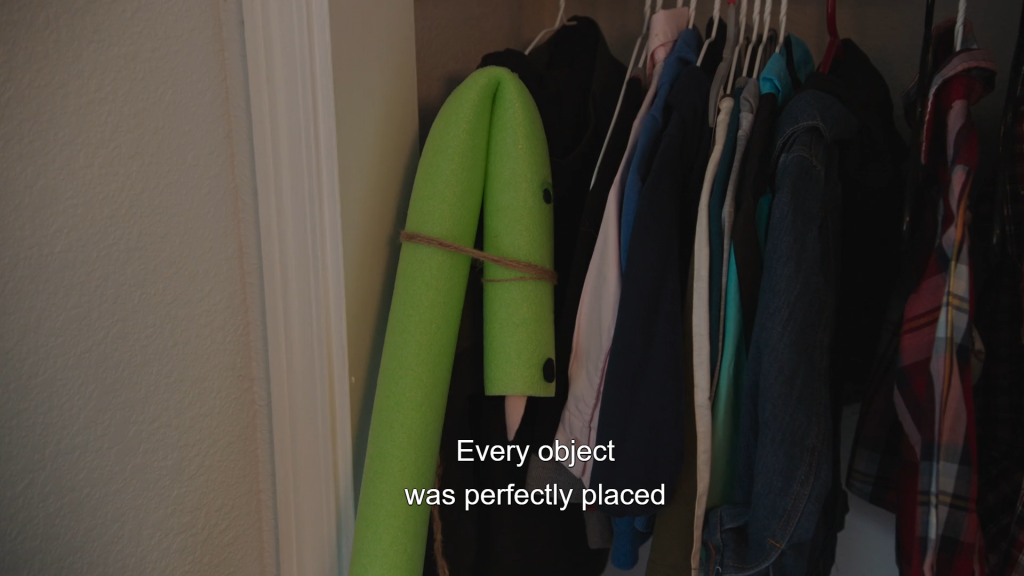
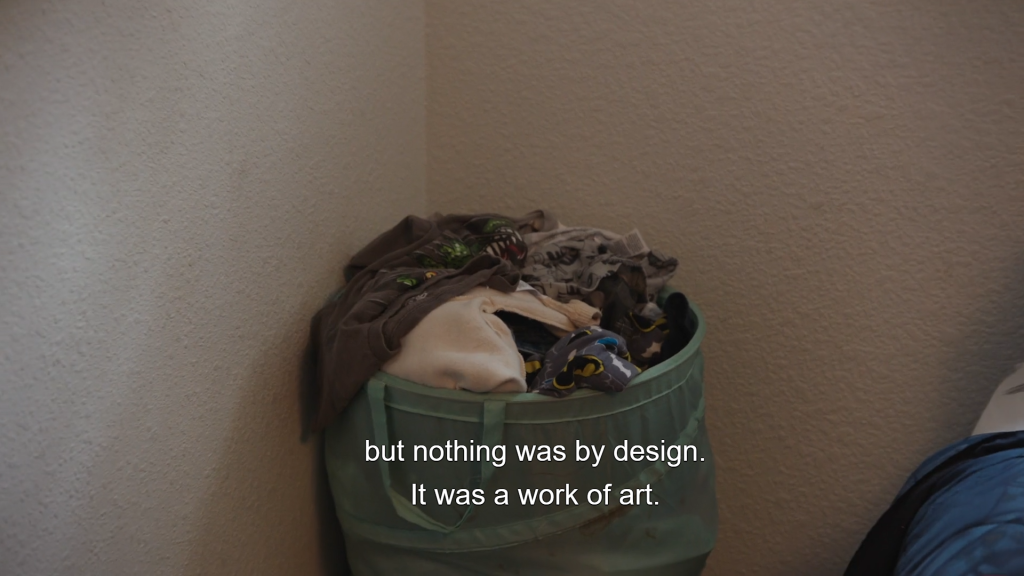

This theme is core to Nathan’s work, which leads many of his detractors to say that he “punches down” and makes these people the butt of his jokes. I personally feel like it’s the complete opposite: he doesn’t punch people down into jokes, he elevates them into art. He gives them a platform, genuinely engages with them and takes an honest try at understanding their reality tunnel. I see this focus on the individual as an extension of his criticism of systemic absurdity. But doing this, he faces the biggest challenge of all.
Communication is impossible
There’s another layer in The Curse: the horrors of ethical capitalism are doubled by the horrors of miscommunication. In a way, they have a common source: if we focus so much on appearances, how can we ever hope to establish genuine connections? But here our institutions only aggravate (and parasitically exploit) a much older problem: communication is impossible.
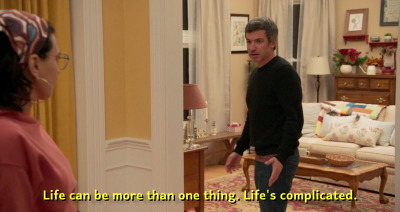
I’m of course thinking of the work of Lacan, but the main theorist of this might be Wittgenstein. His famous beetle box allegory compares your inner experience to a box only you have access to, and therefore you’ll never be sure that someone’s beetle inside the box is the same as yours. It might seem obvious or stupid, but taken on a wider point of view it also means you’ll never be sure of not being misinterpreted. The Curse is full of people talking past each other, most strikingly during couple arguments.
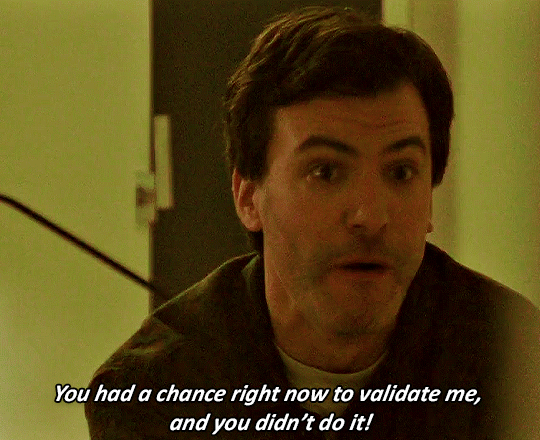
The Curse is also the curse of language, where signifiers can’t ever perfectly capture the signified. Nowhere is that clearer than in the last episode. I did not really like it, but I have to admit that it illustrated pretty elegantly how my assumptions about the story and its operating framework were wrong, just like the protagonist’s assumptions about the locals and their cultures, just like the character’s images of each other. We necessarily need some sort of semantic framework to think and communicate, but we should always be aware that it’s a brittle, artificial, arbitrary and imperfect tool.
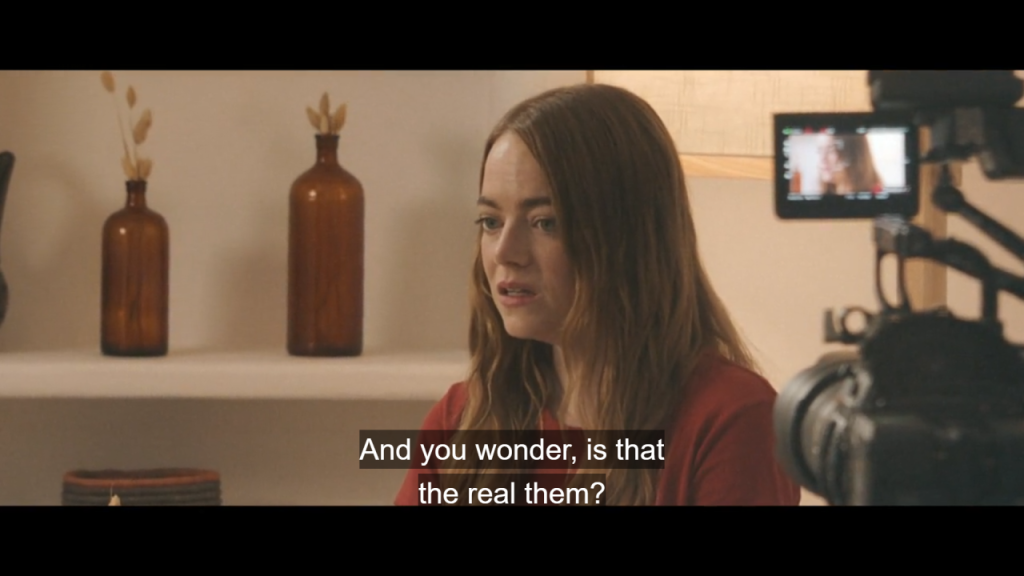
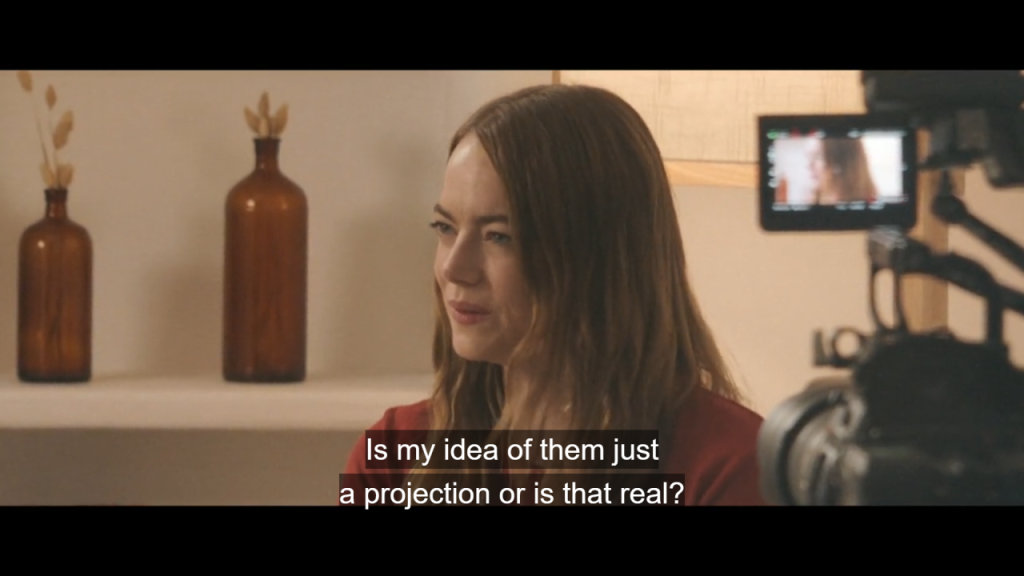
The Rehearsal
Of course, Nathan Fielder knows how hard it is more than anyone, maybe. He is acutely aware of the difficulty of communication. In “Nathan for you” or “The Curse”, and probably in real life, his characters have some level of social anxiety that they try to tackle by preparing for social interactions. In a way, Nathan’s whole art might be his way to do this on a bigger scale. But it’s most concretely crystallized in his HBO show “The Rehearsal”.
The premise is the usual Nathan Fielder’s madness: he reaches out to people who fear an important situation, and he offers to help them prepare by rehearsing the situation in question in a fake setting paid for by HBO budget. The result is Baudrillardianly surreal.

Did I mention that Nathan hires actors to help him rehearse interaction with the participants, or starts an acting class for this show? It predictably quickly devolves into layers of madness where it’s impossible to tell what’s scripted or not anymore. It drives analysts crazy, but I think it’s precisely his point: the distinction does not matter, and doesn’t even make that much sense. There’s no such thing as a “real” communication: social interactions are always mediated and artificial. But maybe so many levels of misdirection can make us forget about the trick and find a kernel of Real.

Meta wo koete
I think Nathan Fielder’s work puts a finger precisely on why I like meta. Meta is not an end in itself. After all, refining things further and further into abstraction, you’d end up with a perfectly uninteresting bland “sphere”. Meta is definitely not a guarantee for quality. For instance, I originally wanted to include Alan Wake 2 in this essay, but I couldn’t find anything good to say about it (except maybe for the fact that the villagers have a fictional story dictate the ontology of their reality, which is a pretty Baudrillardian move).
But when it’s used well, it’s really powerful. Nathan Fielder studies the interplay between individuals and the structures that shapes them and that they shape. He makes a game of this interdependency. He’s a magician using levels of meta as misdirection like so many light tricks. Nathan Fielder tricks his actors them into capturing genuine points of authenticity that transcends the layers of meta-simulations.
In a world that’s a stage, I see his work as Brechtian, trying to break the spell of the illusion to open our eyes to the absurdity and artificiality of it all. Because when we forget on how many levels of social roles and pretending we are, then we can find a kernel of shared truth, some insight into the authentic human. And maybe then do you get a chance at a real connection.
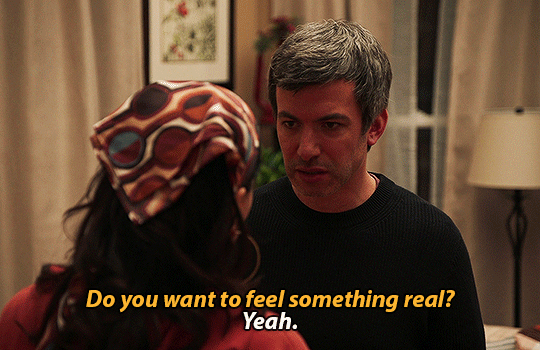

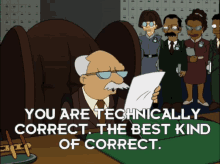

Leave a comment